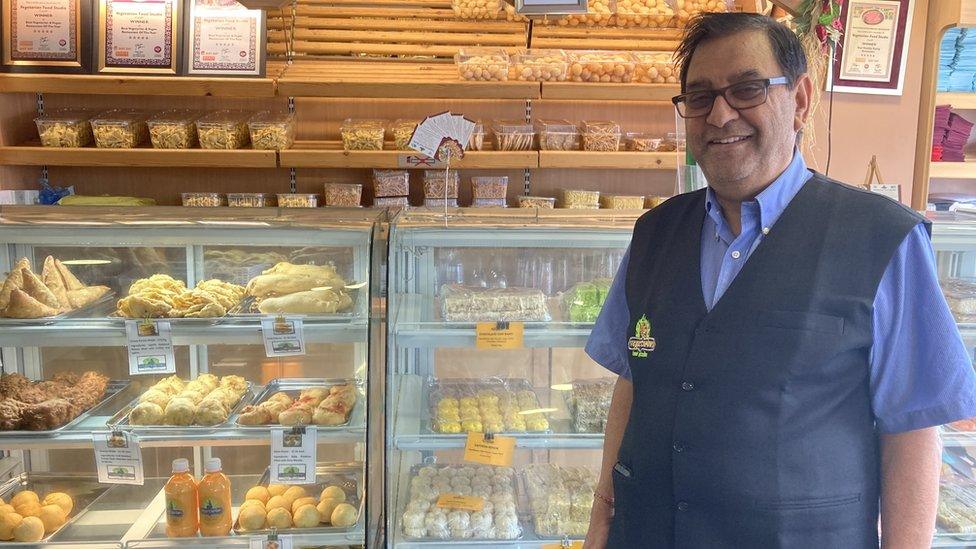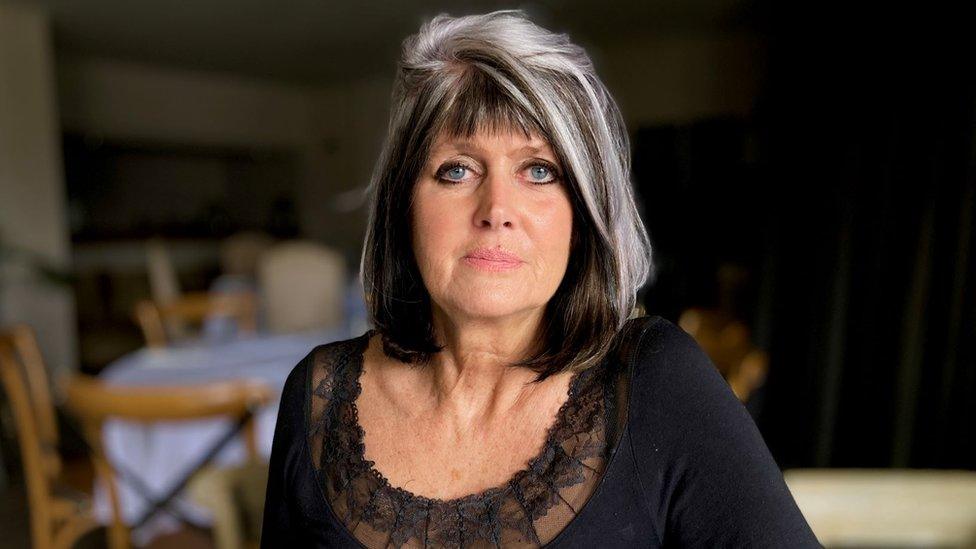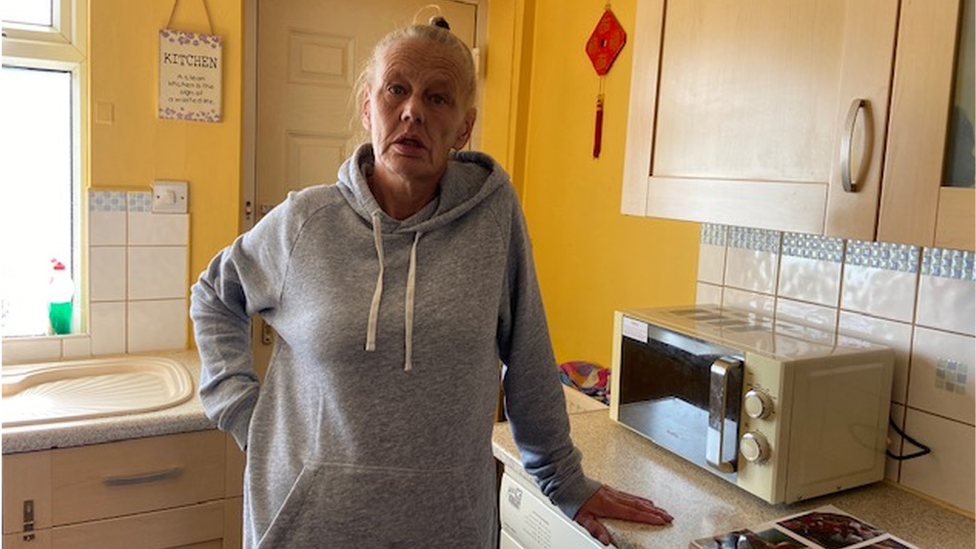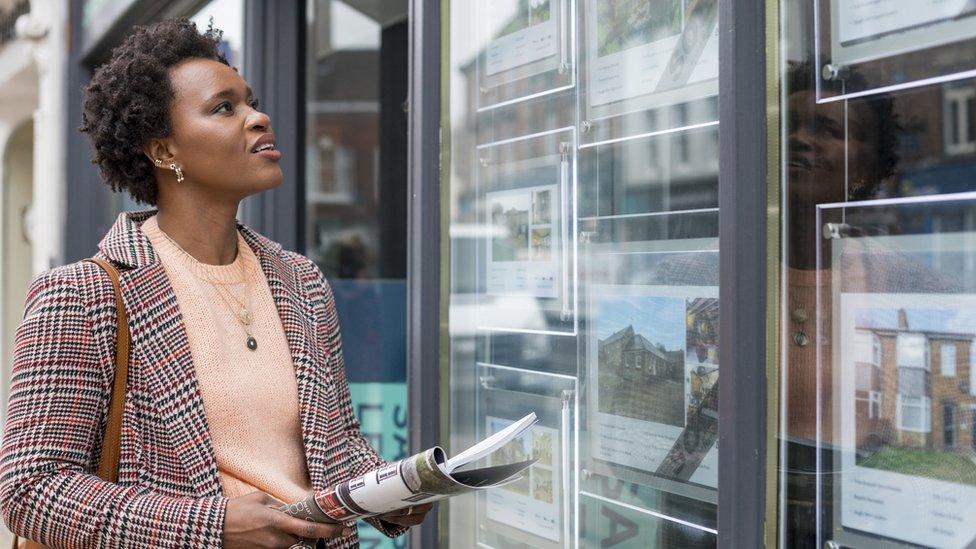'We'll be lucky to keep our heads above water'
- Published
The government has set out plans in a mini-budget designed to boost economic growth and tackle soaring inflation.
These include cuts to stamp duty and income tax, reversing a recent rise in National Insurance, ending the cap on bankers' bonuses, and scrapping a planned increase in corporation tax.
We asked households and businesses how the plans would make a difference to them.

'We'll be lucky to keep our heads above water'

Raj Patel is very concerned about whether his restaurant business will survive
Raj Patel, 65, is the owner of restaurant Vegetarian Food Studio in Grangetown, Cardiff.
He says there is "nothing for small business" in the government plans.
"This budget is for the rich," he says. "Everything is for the rich, not for the poor."
He says scrapping the planned rise in corporation tax would help big business, but not his restaurant.
"If you don't make a big profit, it's not going to make a difference."
Raj is due to sign a 10-year lease on his restaurant in December, but is wary of doing so because he doesn't know if he can pay the rent. His landlord could take him to court if that happened.
Due to food, fuel and energy price rises, he recently put the prices in his restaurant up by £1 per dish. However, over two months, the amount of money the business took dropped by more than a third, and he is worried that this could get worse as people tighten their belts.
"We'll be lucky to keep our heads above water," he says.

'I think the government has done a good job'

Hotel manager Wendy Timewell says the package from the government will help her business
Wendy Timewell, manager at Hotel Wroxham in Hoveton, Norfolk, says the government plans "will certainly help".
"I think the government has done a good job," she says.
The cut to National Insurance "will help hugely", both for the business, which since April had been having to make higher contributions, and for employees, who would get more take-home wages.
In addition, government support on energy bills will help, although it is still unclear by exactly how much.
Wendy says she is "really grateful for all the things the government has done", and that the support will help her cope with "spiralling costs", including food, energy and fuel.
However, despite the hotel being in a strong position, she is still apprehensive about what will happen over the winter.
"We're going into the unknown," she says. "We're not sure how [price rises] will affect the general public. It's terrifying."
One of the first ways people look to save money is by spending less on hospitality, she says.
"Only the strong will survive. The top earners will be fine."
However, businesses that had not been prudent or had been hit hard by the pandemic could go under, Wendy believes.
Hospitality firms are "still paying out huge amounts of Covid debt", she says, while the government has started "aggressively going after businesses for payment".

'The rich are getting richer, the poor are getting poorer'

Chrissy Thornton says she can't see anything in the mini-budget that benefits her
Chrissy Thornton runs the Disability Families of Middleton charity in Leeds on a voluntary basis and looks after her two grandchildren.
She was hopeful the government would provide her with help in the mini-budget.
But at home on Friday, she voiced her disappointment at the measures.
Chrissy gets income support benefit, alongside disability living allowance and carer's allowance as her grandson has multiple conditions, including Raynaud Syndrome.
She can't see anything in the announcement to benefit her.
"The rich are getting richer, the poor are getting poorer. People are struggling, it's getting worse," she says.
"My heart goes out to the elderly and vulnerable and those who are doing two jobs and still can't afford to provide for themselves."

'I'm still worried about energy bills'
Lesley, a nurse from Staffordshire, who didn't want to giver her surname, is in her 50s.
She says the government plans "don't feel like they're going to make a big difference" to many people's lives.
The cut to National Insurance will help, but many people will still be struggling, she says.
She is particularly concerned about energy bills, saying she is "worried about how much further it's going to go up" in October, even with the government's Energy Price Guarantee scheme.
"My husband and I are already talking about how much of the winter we could manage without the heating on," she says.
"You don't think in this day and age you'd be saying: 'How many blankets do I need to put around my knees?'"
Lesley is worried about elderly relatives getting cold and about discharging elderly patients.
"It puts pressure on us as nurses," she says. "If we discharge them, we think: 'Are they going to be sat at home, freezing cold?'"
Lesley's husband is disabled, and she is the main income-earner in her household.
She is noticing higher food prices and has started shopping more at discounters.
"We're thinking: 'What do we really need?'" she says. "It's changed my shopping practices. I used to go out and not even look at the prices of things."
Lesley is also doing more batch cooking to try to save energy, and car-sharing with colleagues to get to work due to higher fuel prices.
Related topics
- Published23 September 2022

- Published23 September 2022

- Published23 September 2022
